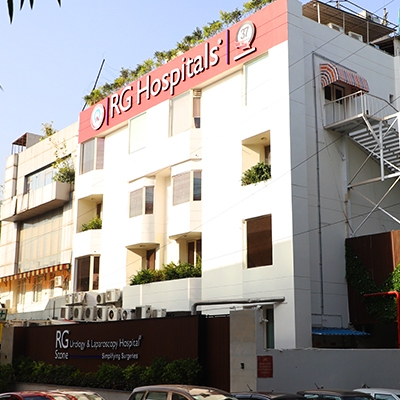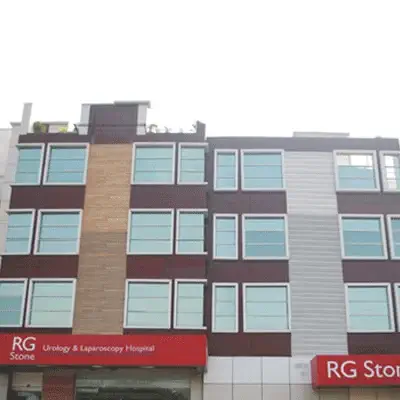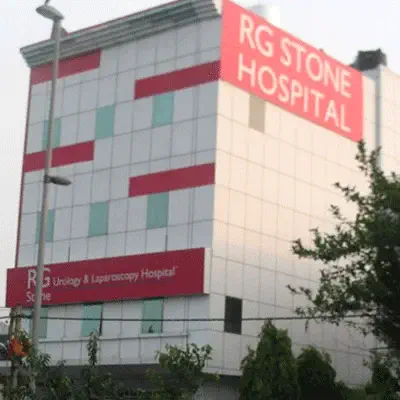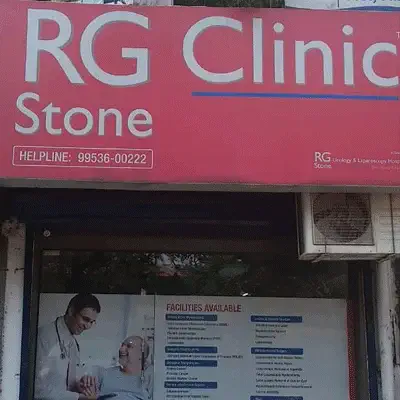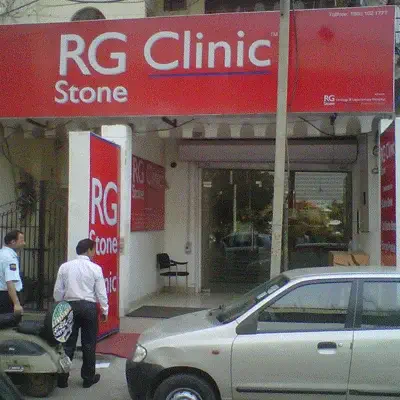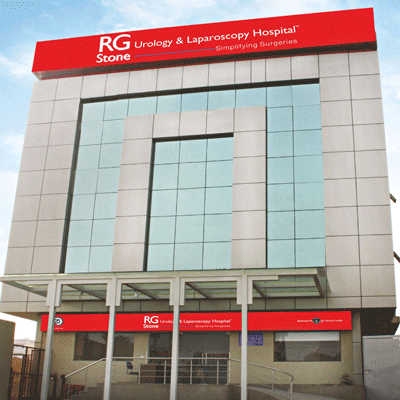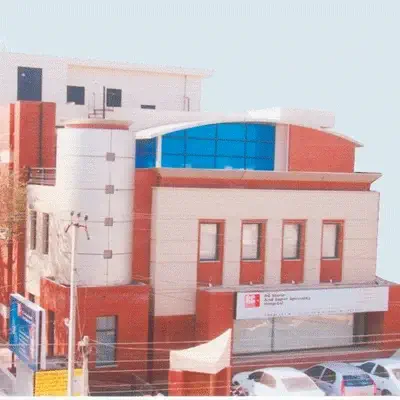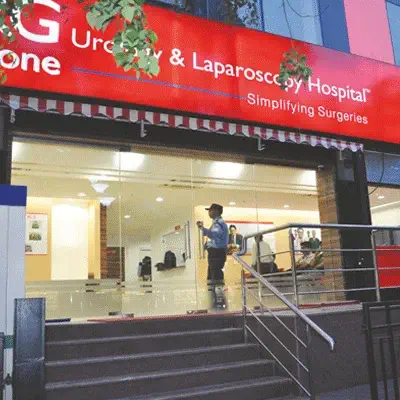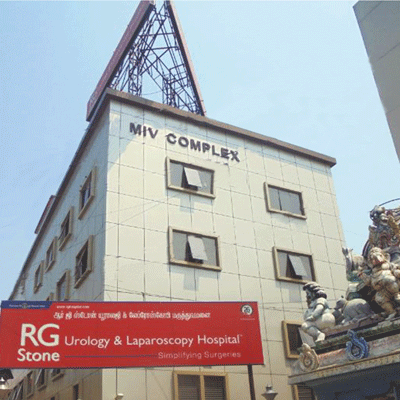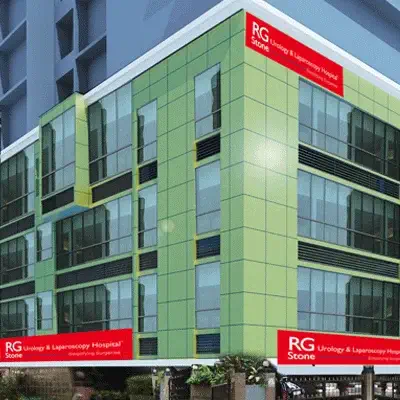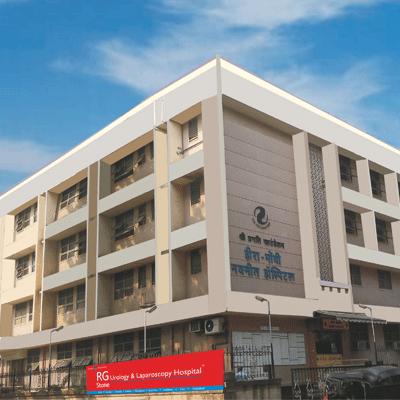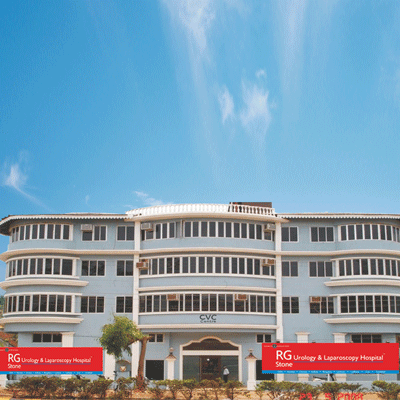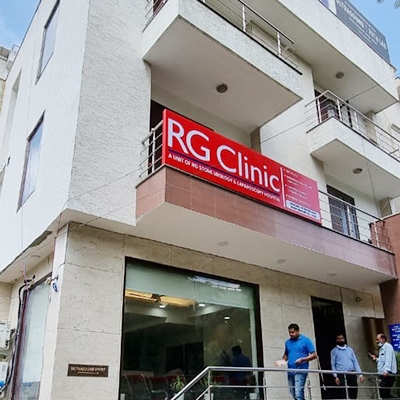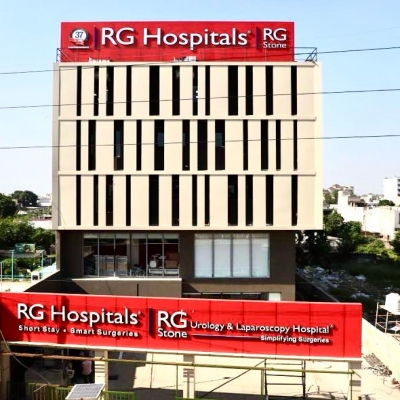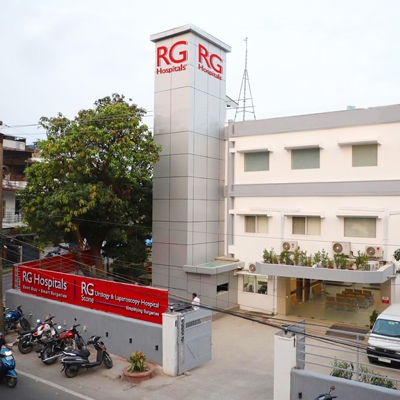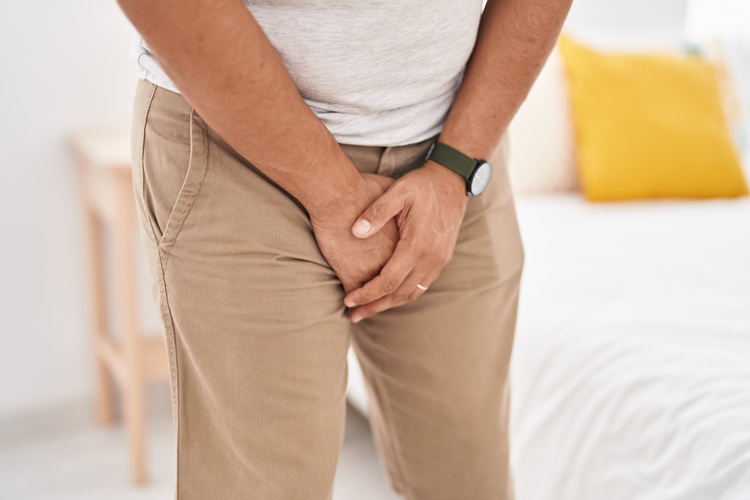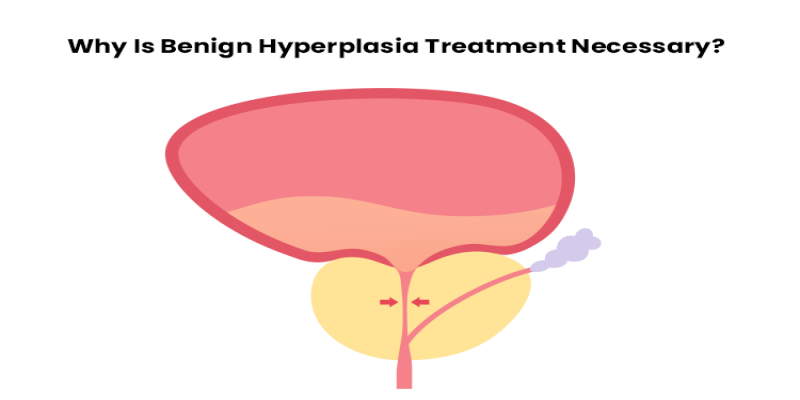Benign Prostatic Hyperplasia (BPH), commonly known as an Enlarged Prostate, is a condition where the prostate gland increases in size, often affecting men after the age of 40. The exact cause of BPH is not well understood, but it is believed to be linked to hormonal changes that occur with aging, particularly the balance of Testosterone and Estrogen. Genetic factors and a family history of prostate issues may also contribute to the development of BPH. Symptoms of BPH can vary in severity and may include frequent urination, especially at night (Nocturia), difficulty starting and stopping urination, weak urine stream, and the sensation of incomplete bladder emptying. In some cases, it can lead to Urinary Tract Infections or Bladder Stones due to the inability to fully empty the bladder.
Diagnosing BPH typically involves a combination of medical history evaluation, physical examinations, and diagnostic tests. During a physical examination, a Digital Rectal Exam (DRE) is performed to assess the size and condition of the prostate. Additionally, urine tests can help rule out infections or other conditions that might cause similar symptoms. A Prostate Specific Antigen (PSA) blood test may also be conducted to measure PSA levels, which can be elevated in men with BPH. Imaging tests such as Ultrasound or MRI can provide detailed pictures of the Prostate and Urinary system. In some cases, a Urodynamic Test might be recommended to assess how well the bladder and urethra are functioning. Together, these diagnostic tools help in confirming the presence of BPH and determining the most appropriate treatment options.
Procedures & Interventions
Holmium Laser Enucleation of the Prostate (HoLEP) is a minimally invasive procedure used to treat an Enlarged Prostate. This procedure uses a 100 W holmium laser to remove the excess Prostate tissue that is causing the blockage of urine flow. It is effective for men with large prostates and it offers a faster recovery and fewer complications as compared to traditional surgery.
TransUrethral Resection of the Prostate (TURP) is a common surgery for treating an Enlarged Prostate. A special instrument is inserted through the Urethra (the tube that carries urine out of the body) to remove parts of the prostate that are causing blockage. Recovery usually takes a few weeks
Prostatectomy (Open Prostate Surgery) is a procedure used to treat severe cases of an Enlarged Prostate or for more complex cases. A larger incision is made in the lower abdomen to remove the excess prostate tissue. Open surgery may involve a longer hospital stay and recovery period in comparison to minimal access procedures.
A thin tube with a small antenna is inserted through the urine passage (urethra) into the prostate. This antenna delivers controlled microwave energy that generates heat inside the prostate. The heat destroys extra prostate tissue, which shrinks the gland and helps improve urine flow.
A thin tube with a tiny camera (called a cystoscope) is gently inserted through the urine passage (urethra). Through this tube, very fine needles are passed that give off controlled heat using radio waves. This heat destroys the extra prostate tissue, making the prostate smaller and easing urine flow.
A thin tube with a tiny camera (cystoscope) is inserted through the urine passage (urethra). The doctor then makes one or two small cuts in the prostate using special instruments. These cuts relax the prostate tissue, widen the urine passage, and make it easier for urine to flow without removing prostate tissue.
NanoSlim MiPS (Minimally Invasive Prostate Surgery) uses the 150 W Holmium laser to precisely remove the extra prostate tissue that's causing urinary problems. A Smaller 22 fr sheath is used with a smaller telescope that is best suited for the urethra of Indian men & is the latest technique used in prostate gland removal surgery. It is a minimally invasive option, which means smaller cuts and faster recovery.
The UroLift procedure uses a thin tube inserted through the urine passage (urethra) to reach the prostate. Instead of removing or destroying tissue, tiny permanent implants are placed to gently pull back the enlarged prostate tissue. This opens up the urine passage and makes it easier to pass urine, without cutting, heating, or removing the prostate.
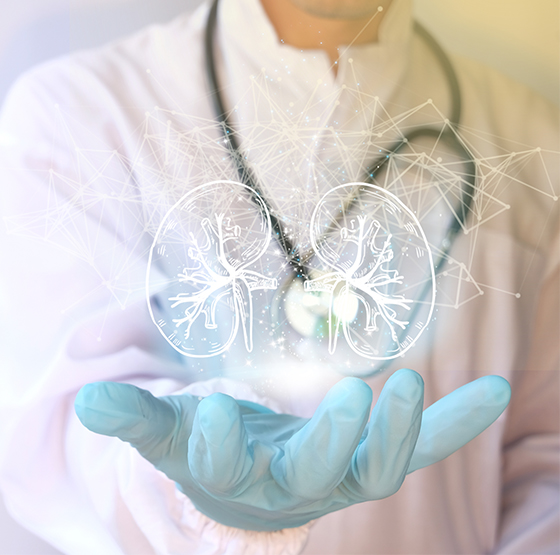
Holmium Laser Enucleation of the Prostate (HoLEP) is a minimally invasive procedure used to treat an Enlarged Prostate. This procedure uses a 100 W holmium laser to remove the excess Prostate tissue that is causing the blockage of urine flow. It is effective for men with large prostates and it offers a faster recovery and fewer complications as compared to traditional surgery.
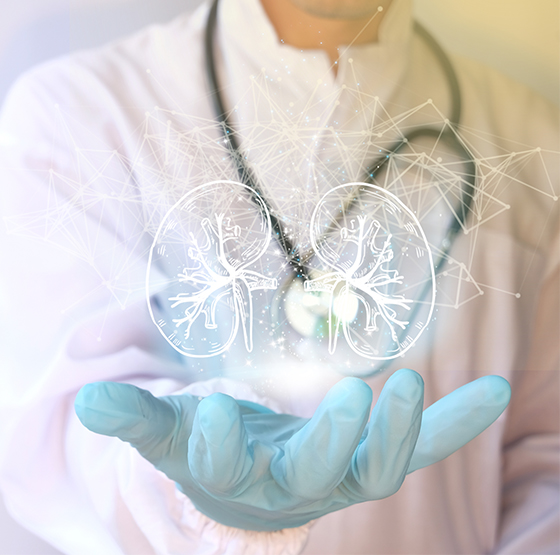
TransUrethral Resection of the Prostate (TURP) is a common surgery for treating an Enlarged Prostate. A special instrument is inserted through the Urethra (the tube that carries urine out of the body) to remove parts of the prostate that are causing blockage. Recovery usually takes a few weeks
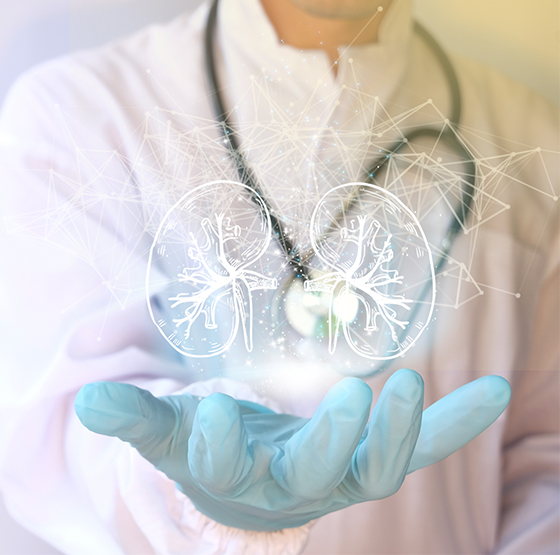
Prostatectomy (Open Prostate Surgery) is a procedure used to treat severe cases of an Enlarged Prostate or for more complex cases. A larger incision is made in the lower abdomen to remove the excess prostate tissue. Open surgery may involve a longer hospital stay and recovery period in comparison to minimal access procedures.
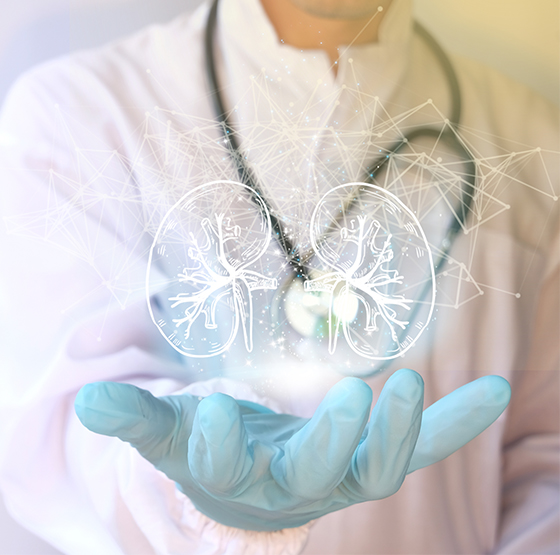
A thin tube with a small antenna is inserted through the urine passage (urethra) into the prostate. This antenna delivers controlled microwave energy that generates heat inside the prostate. The heat destroys extra prostate tissue, which shrinks the gland and helps improve urine flow.
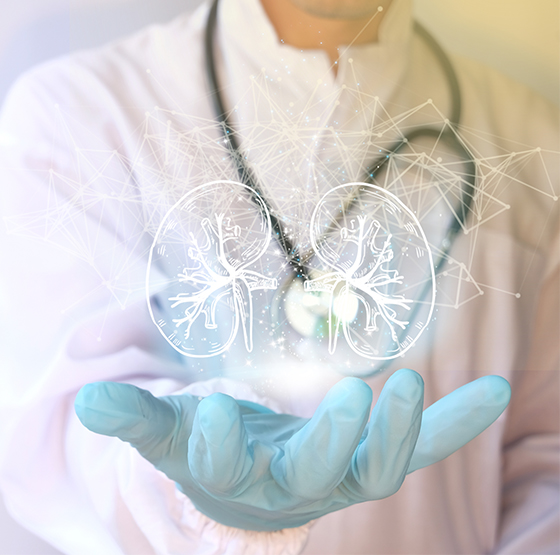
A thin tube with a tiny camera (called a cystoscope) is gently inserted through the urine passage (urethra). Through this tube, very fine needles are passed that give off controlled heat using radio waves. This heat destroys the extra prostate tissue, making the prostate smaller and easing urine flow.
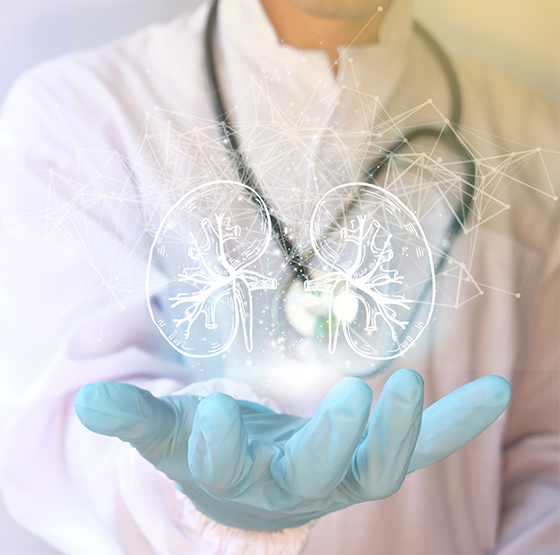
A thin tube with a tiny camera (cystoscope) is inserted through the urine passage (urethra). The doctor then makes one or two small cuts in the prostate using special instruments. These cuts relax the prostate tissue, widen the urine passage, and make it easier for urine to flow without removing prostate tissue.
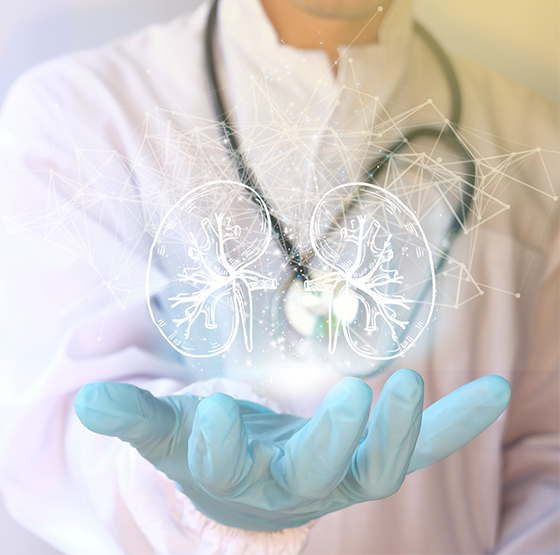
NanoSlim MiPS (Minimally Invasive Prostate Surgery) uses the 150 W Holmium laser to precisely remove the extra prostate tissue that's causing urinary problems. A Smaller 22 fr sheath is used with a smaller telescope that is best suited for the urethra of Indian men & is the latest technique used in prostate gland removal surgery. It is a minimally invasive option, which means smaller cuts and faster recovery.
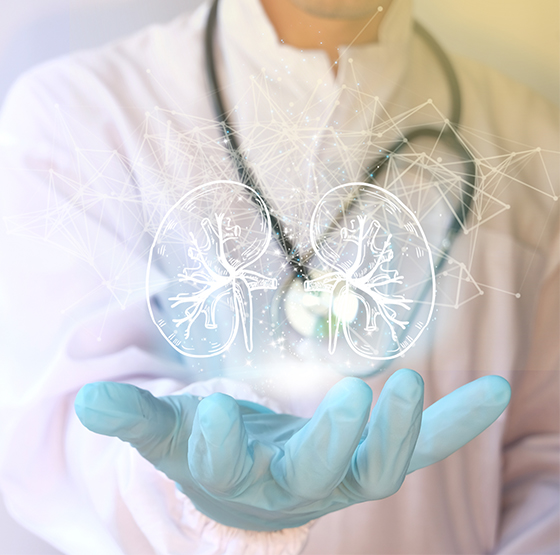
The UroLift procedure uses a thin tube inserted through the urine passage (urethra) to reach the prostate. Instead of removing or destroying tissue, tiny permanent implants are placed to gently pull back the enlarged prostate tissue. This opens up the urine passage and makes it easier to pass urine, without cutting, heating, or removing the prostate.
Team of Excellence
Behind every recovery story at RG Hospitals is a team of exceptional doctors whose passion for healing and innovation continues to transform healthcare and redefine patient outcomes.
Find a DoctorLooking for an Expert
RG Hospitals is proud to be the home of some of the world's most distinguished doctors.
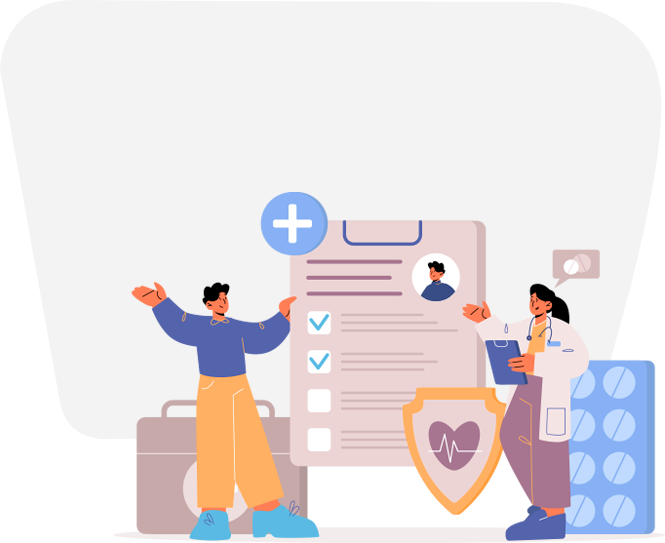
Patient Stories
View AllPatient Testimonial | Commitment To Care
Treated by Dr. Manoj Gupta , RG Stone Hospital, Dehradun
- All Locations
- New Delhi
- Haryana
- Punjab
- Kolkata
- Chennai
- Mumbai
- Goa
- Uttar Pradesh
- Uttarakhand


